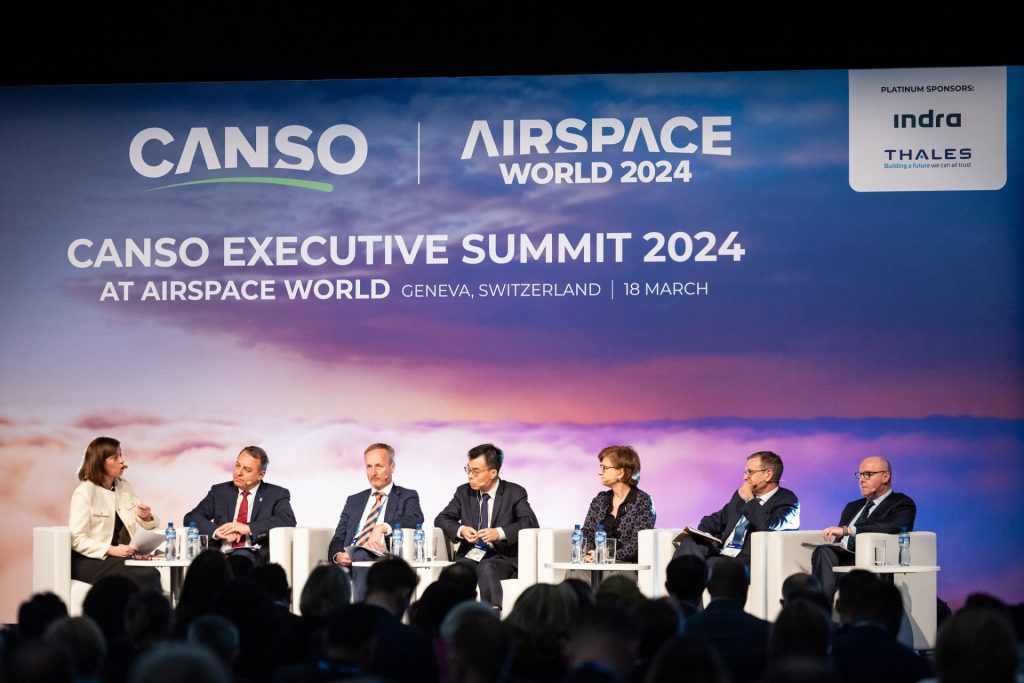Aviation is committed to net zero carbon emissions by 2050. A panel on innovation for greener skies at the CANSO Executive Summit 2024 agreed that collaboration is essential to achieve this aim, which is likely to be the biggest challenge that aviation will face in the next 26 years.

Pursuing greater efficiency will lead to improved sustainability. Moreover, it is the only viable way forward. Although traffic is predicted to almost double by 2050, no such increase is suggested for airports or air traffic management in terms of staff or other relevant parameters.
This means efficiency improvements, such as trajectory-based operations (TBO), will be vital. The question is how to implement procedural improvements when they rely on huge amounts of real time data. Other sustainability-related initiatives, including contrail avoidance, will only increase the challenge.
The hope is that artificial intelligence (AI) will make this possible. The potential of the technology was agreed by the panel although this has yet to translate to the physical world. Peter Kearney, CEO, AirNav Ireland likened this to a dog chasing a car that loves the chase but has no idea what to do if it catches the car.
Filip Cornelis, Director of Aviation, European Commission, also pointed out that digitalisation cannot just be digitising an analogue process which, he argued, changes nothing.
Marie Owens Thomsen, SVP Sustainability and Chief Economist, IATA, made an impassioned plea for transportation to be accessible for all because aviation is one of the greatest drivers of social and economic progress the world has ever known. But she stressed that only “unity in mission” could make this happen in a sustainable way. This unity involves not only airlines, airports and air navigation service providers but also governments and the customer.
The panel accepted that costs would go up but Kok Juan Han, Director General, CAAS, asked the critical question: “How much will people, organisations and governments pay to go green?”
He noted that Singapore has a 1 per cent surcharge, equating to about US$10. These “baby steps”, as he termed it, are essential as price elasticity – the amount people will pay before demand is affected – comes into play and that could change. Also, aviation would have to show that the finances were being properly used and carbon emissions were coming down. Monitoring, reporting, and most importantly, communicating the improvements would become mission critical.
The panel concluded with participants agreeing that being innovative and green equates to a good service to the customer. Ultimately, that will mean attracting more customers and generating more revenue. It will also mean avoiding the penalties that will doubtless be implemented for not pursuing carbon reduction strategies.
The Panel
- Filip Cornelis, Director of Aviation, European Commission
- Marie Owens Thomsen, SVP Sustainability and Chief Economist, IATA
- Luis Felipe de Oliveira, Director General, ACI World
- Michelle Bishop, Director Programmes, CANSO
- Kok Juan Han, Director General, CAAS
- Ramon Tarrech Masdeu, Director ATM Strategy and Innovation, Indra
- Peter Kearney, CEO, AirNav Ireland


